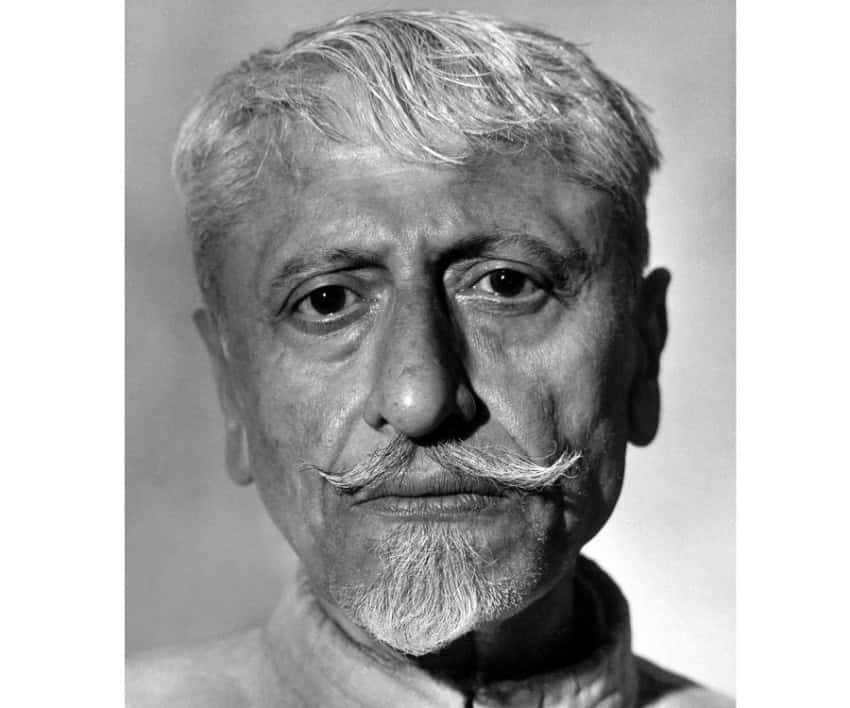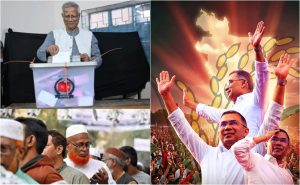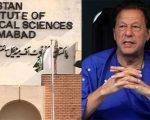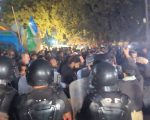KOLKATA – A bust of Maulana Abul Kalam Azad – India’s first Union Education Minister – was razed to the ground by a furious mob during violence that followed the Ram Navami processions in West Bengal.
Azad’s statue was installed in Kakinara in North 24-Parganas but the miscreants knocked it down during a spree of violence that started on Sunday, when the Hindus were celebrating Ram Navami, a festival that celebrates the appearance of Lord Rama on the
holy land of Ayodhya.
Connecting the dots which led to the demolition of the statue, an eyewitness said the trouble in Bhatpara began when the crowd was passing by Jama Masjid in Ghosh Para which is a Muslim-dominated area.
Statue of Maulana abul kalam azad has been destroyed by hindutva malitia in kakinara, Bengal.
This is the legacy of guy who opposed the #Pakistan movement & fought Jinnah for his hindu supremacist benefactors.#ThankYouJinnah pic.twitter.com/zEXZYBjBah
— Asfandyar Bhittani (@BhittaniKhannnn) March 27, 2018
The witness continued that a group of people said something, which irked the Muslim community consequently leading to an argument, followed by stone-pelting. As the procession was long, half the people were already near the Kankinara rail bridge, which was recently renamed after Maulana Abul Kalam Azad but when these people heard about the incident near the Jama Masjid, they pulled down the statue of Maulana Azad besides targeting vehicles parked in the area.
Bhatpara MLA and municipality chairperson Arjun Singh confirmed the desecration of Maulana Abul Kalam Azad’s statue without furnishing any further details.

“Cops are investigating. I do not know anything more,” he reportedly said about the statue which was inaugurated on January 26 this year.
On the other hand, local TMC MLA Arjun Singh claimed that the statue was never there.
“The statue had not been constructed yet. Rumours are being spread and people are taking advantage of the situation,” he asserted.

Although the video clips, showing the statue being pulled down are stumping the internet, police seem to be shrugging off the matter.
“The statue is not a big thing. Our focus should be human lives. Statues can be reconstructed,” said a police official quoted by Indian Express.
The violence not only targeted Maulana Abul Kalam Azad’s statue, it also claimed the life of 30-year-old Maqsood Khan who was reportedly shot in Katapukur, near the Jama Masjid.
Khan’s widow, Gulabsa Begum expressed that her husband heard about the tension in the area and went out to bring back our six-year-old daughter, who had gone out.
“He didn’t come back. Somebody fired at him and he collapsed on the road. Some people rushed him to the police station, and then to the hospital, where the doctors declared him dead,” added Gulabsa.
Deputy Commissioner of Police, Barrackpore, Dhrubjyoti Dey observed that the casualty was being investigated, hastening to add that the first priority was to maintain peace in the area and then probe details of the incident and the reason behind it.
Nationalist Maulana Abdul Kalam Azad & Pakistan
A Muslim by religion, Maulana was a leading figure in India’s struggle for freedom and an acclaimed writer, poet and journalist. He opposed the partition of Bengal in 1905.
Azad was the face of communal harmony in modern India and he established the Indian Institute of Technology and also contributed to the foundation of the University Grant Commission.
He was inspired by Gandhi and was an active supporter of the latter’s non-violence, civil disobedience and non-cooperation movement.
Unlike other Muslim leaders, he condemned communal separation advocated by Muhammad Ali Jinnah and other Muslim leaders and also opposed the need for the separate electorate as demanded by Muslims of the sub-continent.
Under Nehru administration, he also served as India’s first Minister of Education from 1947 to 1958.
Muhammad Ali Jinnah and his companions voiced strongly against Azad’s conflicting opinion regarding communal separation and jeered at him by calling him ‘Muslim Lord Haw-haw’ and ‘Congress Showboy’.














